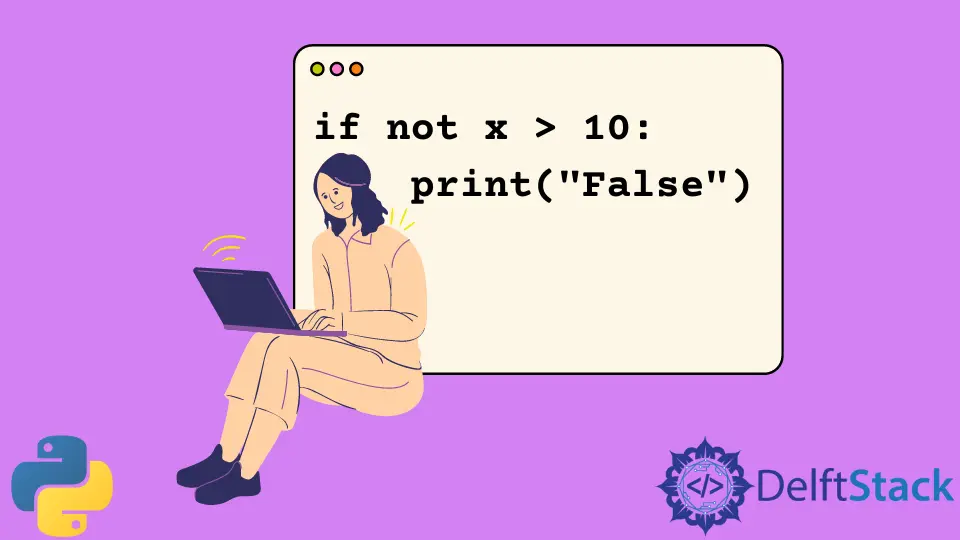Python 中的 if not 语句
Manav Narula
2021年2月28日

Python 中的 if 语句检查一个特定的条件,如果条件为真,则执行一个代码块。
if not 的作用与 if 语句相反。它测试一个条件是否为假,然后执行一些语句。
使用 if not 语句可以提高代码的可读性,对于返回 False 的条件可以直接执行一些语句。
下面的代码将有助于解释它的使用。
x = 5
if not x > 10:
print("False")
输出:
False
由于 x > 10 为 False,所以代码被执行。
与 if 语句类似,它可以有多个条件,我们也可以用它和 else 关键字一起创建 if-else 块。
if not 语句也可以用来检查一个数据集合,如列表、字典是否为空。在 Python 中,如果一个变量或对象是 0 或空,那么它被认为是假的。请看下面的例子。
lst = []
if not lst:
print("Empty")
输出:
Empty
同样,它的使用也可以扩展到其他条件,比如检查某个东西是否在集合中不存在。例如,如果一个元素不存在于一个列表中,我们可以使用 if not 与 in 关键字来执行一些语句,如下所示。
lst = [1, 2, 3, 5, 6]
if not 4 in lst:
print("All Okay")
else:
print("Not Okay")
输出:
All Okay
作者: Manav Narula
Manav is a IT Professional who has a lot of experience as a core developer in many live projects. He is an avid learner who enjoys learning new things and sharing his findings whenever possible.
LinkedIn